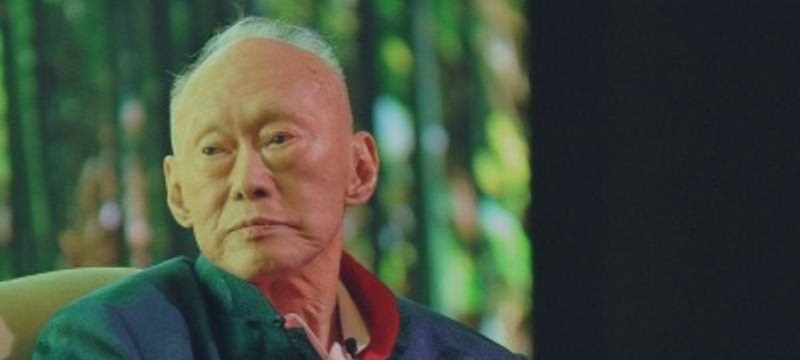That evening Lee also scorned the Malaysian government’s recent announcement requiring all students to study the Malay language. With more verve than I had seen him show at Harvard, he asked rhetorically what good purpose could be served by such a requirement. If Malaysia was to get on with its modernisation, he said, it should be insisting that every student master English. He dismissed Malay as merely a passport back to the jungle.
The only other thing I recall from that evening was the conversation I had with the Attorney General, Tan Boon Teik, as he drove us to our hotel after dinner: ‘I liked the way you talked up to the PM,’ he volunteered. That highlighted the fact that no one else at the table had dared a word during my long exchange with Lee.
Four years later, in 1973 and largely as a result of Nixon’s spectacular 1972 China trip, the world had begun to change, as Lee had anticipated. Some of my former Harvard law students wanted to take part in the new era. A cluster of them, having found jobs at the famed international law firm Coudert Brothers, asked me to help Coudert establish offices in Hong Kong and Singapore. Hong Kong’s British colonial government had already allowed the entry of a Canadian law firm, but newly independent Singapore had not yet permitted any foreign firms to set up shop.
As in most of the Asian capitals attractive to foreign law firms, the local bar strongly opposed their entry in order to maintain its monopoly on law practice. But the Singapore government, guided by Lee’s determination to speed the modernisation of the country, expected the arrival of major international law firms experienced in facilitating foreign direct investment to raise the standards of law practice. They were to provide better training and more jobs for the country’s younger lawyers and bolster multinationals’ confidence in Singapore.
The government, of course, did not wish to disregard the objections of the local lawyers. Lee himself had practised law for years before entering politics, and his wife and brother continued to operate one of the more lucrative local firms. Lee artfully made change gradual, with Coudert leading the way and other foreign firms admitted as the market for services developed.
Singapore’s legal profession actually had little capacity to resist change, for by then the limited influence and prestige it had inherited from the colonial English system had been significantly eroded.
One of the hallmarks of Lee’s relentless drive to secure and maintain power was the increasing subjection to his will of lawyers as well as legislators, prosecutors and judges. His ‘preventive detention’ without trial of political lawyers and other democratic dissidents was only one of many tools he used to repress not only legal institutions but also the media, civil society and opposition parties. When in 1969 Lee, displeased with some jury verdicts in capital cases, completely abolished the jury trial — one of the common law’s most hallowed institutions — lawyers who complained were threatened.
In May 1988 I made my last visit to Singapore on an emergency basis at the request of international human rights organisations. Reverting to his penchant for detention without trial, Lee had been locking up a number of Catholic social activists and reformist lawyers. The activists and lawyers had been trying to educate the public about Singapore’s exploitation of its most disadvantaged citizens and foreign workers, as well as the need to strengthen labour laws and regulation.
Relying on his time-tested formula of twisting legitimate dissent into an alleged threat to national security, Lee’s administration improbably denounced the group as part of a London-based ‘Marxist conspiracy’ determined to overthrow the state. This unproven charge enabled the government to invoke the notorious Internal Security Act, which echoed the British colonial regime’s most repressive legislation, to arrest its critics without having to expose any relevant facts to the scrutiny of the courts or the public.
When Lee was reportedly also about to detain the principal defence counsel, Francis Seow, the international human rights community became more gravely concerned than ever. Seow, a feisty former solicitor general and president of the Law Society, had been unsuccessfully resisting Lee’s dictatorial moves for many years, but had not been intimidated by previous efforts to inhibit and silence him.
I was working and residing in Hong Kong and since two international human rights organisations knew of my previous contacts with Lee, they asked me to fly to Singapore in an effort to dissuade Lee from arresting Seow. I quickly arranged an exciting day’s visit. In the morning I went to court to watch Seow vainly attempt to obtain judicial relief for his clients’ unlawful imprisonment by invoking the city-state’s liberal constitutional protections before unsympathetic judges.
The only other thing I recall from that evening was the conversation I had with the Attorney General, Tan Boon Teik, as he drove us to our hotel after dinner: ‘I liked the way you talked up to the PM,’ he volunteered. That highlighted the fact that no one else at the table had dared a word during my long exchange with Lee.
Four years later, in 1973 and largely as a result of Nixon’s spectacular 1972 China trip, the world had begun to change, as Lee had anticipated. Some of my former Harvard law students wanted to take part in the new era. A cluster of them, having found jobs at the famed international law firm Coudert Brothers, asked me to help Coudert establish offices in Hong Kong and Singapore. Hong Kong’s British colonial government had already allowed the entry of a Canadian law firm, but newly independent Singapore had not yet permitted any foreign firms to set up shop.
As in most of the Asian capitals attractive to foreign law firms, the local bar strongly opposed their entry in order to maintain its monopoly on law practice. But the Singapore government, guided by Lee’s determination to speed the modernisation of the country, expected the arrival of major international law firms experienced in facilitating foreign direct investment to raise the standards of law practice. They were to provide better training and more jobs for the country’s younger lawyers and bolster multinationals’ confidence in Singapore.
The government, of course, did not wish to disregard the objections of the local lawyers. Lee himself had practised law for years before entering politics, and his wife and brother continued to operate one of the more lucrative local firms. Lee artfully made change gradual, with Coudert leading the way and other foreign firms admitted as the market for services developed.
Singapore’s legal profession actually had little capacity to resist change, for by then the limited influence and prestige it had inherited from the colonial English system had been significantly eroded.
One of the hallmarks of Lee’s relentless drive to secure and maintain power was the increasing subjection to his will of lawyers as well as legislators, prosecutors and judges. His ‘preventive detention’ without trial of political lawyers and other democratic dissidents was only one of many tools he used to repress not only legal institutions but also the media, civil society and opposition parties. When in 1969 Lee, displeased with some jury verdicts in capital cases, completely abolished the jury trial — one of the common law’s most hallowed institutions — lawyers who complained were threatened.
In May 1988 I made my last visit to Singapore on an emergency basis at the request of international human rights organisations. Reverting to his penchant for detention without trial, Lee had been locking up a number of Catholic social activists and reformist lawyers. The activists and lawyers had been trying to educate the public about Singapore’s exploitation of its most disadvantaged citizens and foreign workers, as well as the need to strengthen labour laws and regulation.
Relying on his time-tested formula of twisting legitimate dissent into an alleged threat to national security, Lee’s administration improbably denounced the group as part of a London-based ‘Marxist conspiracy’ determined to overthrow the state. This unproven charge enabled the government to invoke the notorious Internal Security Act, which echoed the British colonial regime’s most repressive legislation, to arrest its critics without having to expose any relevant facts to the scrutiny of the courts or the public.
When Lee was reportedly also about to detain the principal defence counsel, Francis Seow, the international human rights community became more gravely concerned than ever. Seow, a feisty former solicitor general and president of the Law Society, had been unsuccessfully resisting Lee’s dictatorial moves for many years, but had not been intimidated by previous efforts to inhibit and silence him.
I was working and residing in Hong Kong and since two international human rights organisations knew of my previous contacts with Lee, they asked me to fly to Singapore in an effort to dissuade Lee from arresting Seow. I quickly arranged an exciting day’s visit. In the morning I went to court to watch Seow vainly attempt to obtain judicial relief for his clients’ unlawful imprisonment by invoking the city-state’s liberal constitutional protections before unsympathetic judges.



